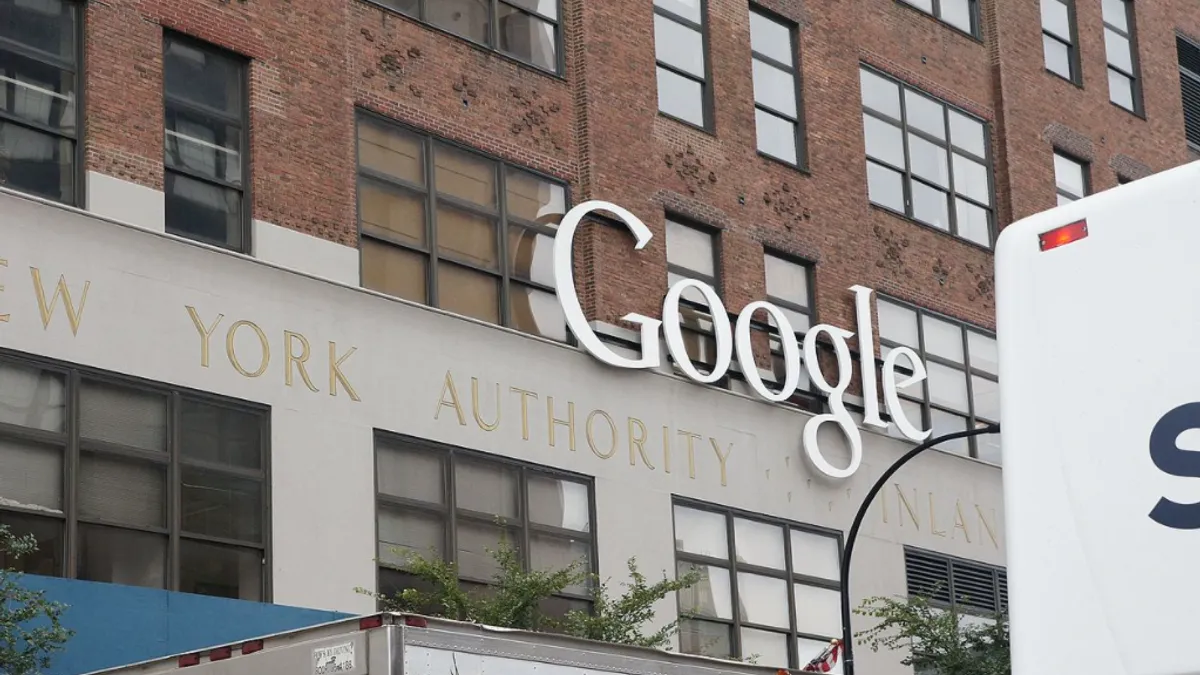More than 500 workers at Google's parent company have signed on to form a union. On Monday, the Alphabet Workers' Union released an official announcement on its website as well as an op-ed in The New York Times further explaining the decision. This union represents a shift for labor organization in the modern era, occurring at a major tech company and one of the wealthiest employers in the world.
"[W]e've seen first-hand that Alphabet responds when we act collectively," Google program manager Nicki Anselmo said. "Our new union provides a sustainable structure to ensure that our shared values as Alphabet employees are respected even after the headlines fade."
The AWU is not seeking federal certification from the National Labor Relations Board (NLRB) at this time. It will instead operate as a minority union, according to reporting by The New York Times, and focus on driving change at the company through public advocacy.
Since the company will not need to acknowledge the union or engage in collective bargaining over wages or working conditions, its relationship with AWU will be unique compared to traditional unions.
"The question for Google is not whether they have to do anything, but whether they want to do something in order to address [the union's] concerns," Damian Cavaleri, partner at Hoguet Newman Regal & Kenney, LLP, told HR Dive.
"I wouldn't be surprised to see a fair amount of PR on Google's side to contradict or at least counter what the union is putting out there," he added. "I'm sure Google has policies that are probably at the forefront of all these issues."
The union is supported by the Communications Workers of America (CWA) and "will be the first union open to all employees and contractors at any Alphabet company, with dues-paying members, an elected board of directors, and paid organizing staff," according to the announcement.
The AWU mentioned a handful of incidents that highlighted the need for a union. The incidents included: a 2018 scandal that saw senior executives leave with multi-million-dollar severances amid widespread accusations of sexual harassment; contracts with China and the U.S. Department of Defense that drew ethical concerns; and the recent departure of the company's AI ethics chief.
"To those who are skeptical of unions or believe that tech companies are more innovative without unions, we want to point out that these and other larger problems persist. Discrimination and harassment continue. Alphabet continues to crack down on those who dare to speak out, and keep workers from speaking on sensitive and publicly important topics, like antitrust and monopoly power," said the New York Times op-ed, penned by Parul Koul and Chewy Shaw, the executive chair and the vice chair of the Alphabet Workers Union, respectively.
Alphabet responded by saying it will continue to address employee concerns through direct communication, per a statement from Google's director of people operations to CNN. According to an employment attorney who spoke with HR Dive, the company response is likely to involve public relations efforts as well as internal communications to assure employees of their policies, benefits and channels for support or internal feedback.
"I think there's probably a lot of frustrations," Cavaleri said. "I'm sure the people at Google are trying to figure out [...] what could they have disclosed to make people understand that the issues that are being raised may not be issues" that are strong enough to warrant the formation of a union.
Unions have not typically been prevalent at companies like Google, but the formation of AWU may put other similarly situated employers on watch.
"I think a lot of companies are going to be potentially worried about what this could mean if there's any viability," Cavaleri said. "But I don't know if this is going to be viable."
Cavaleri added that for tech companies, he thinks they “have largely been able to avoid unionizing efforts over the past several years” because of the desirable working environment, benefits and compensation they offer. "You don't really have the same sort of issues that started unions historically, so it's interesting to have the issue now come up for a company like Google."
Cavaleri's statement aligns with the conventional wisdom — and survey findings — that tech workers desire to work for such companies. But while the success of Google, Facebook or Netflix could imply they've done something right in people management and employee satisfaction, comments from the AWU seem to suggest that this conventional wisdom may be a flawed generalization, and its website points to unions at tech companies Kickstarter and Glitch.
"For a handful of wealthy executives, this discrimination and unethical working environment are working as intended, at the cost of workers with less institutional power, especially Black, brown, queer, trans, disabled, and female workers," the op-ed authors wrote. "Each time workers organize to demand change, Alphabet's executives make token promises, doing the bare minimum in the hopes of placating workers."





















